We settled in a beautiful and noble city - Wiesbaden . It was here that Dostoevsky spent his entire fortune.
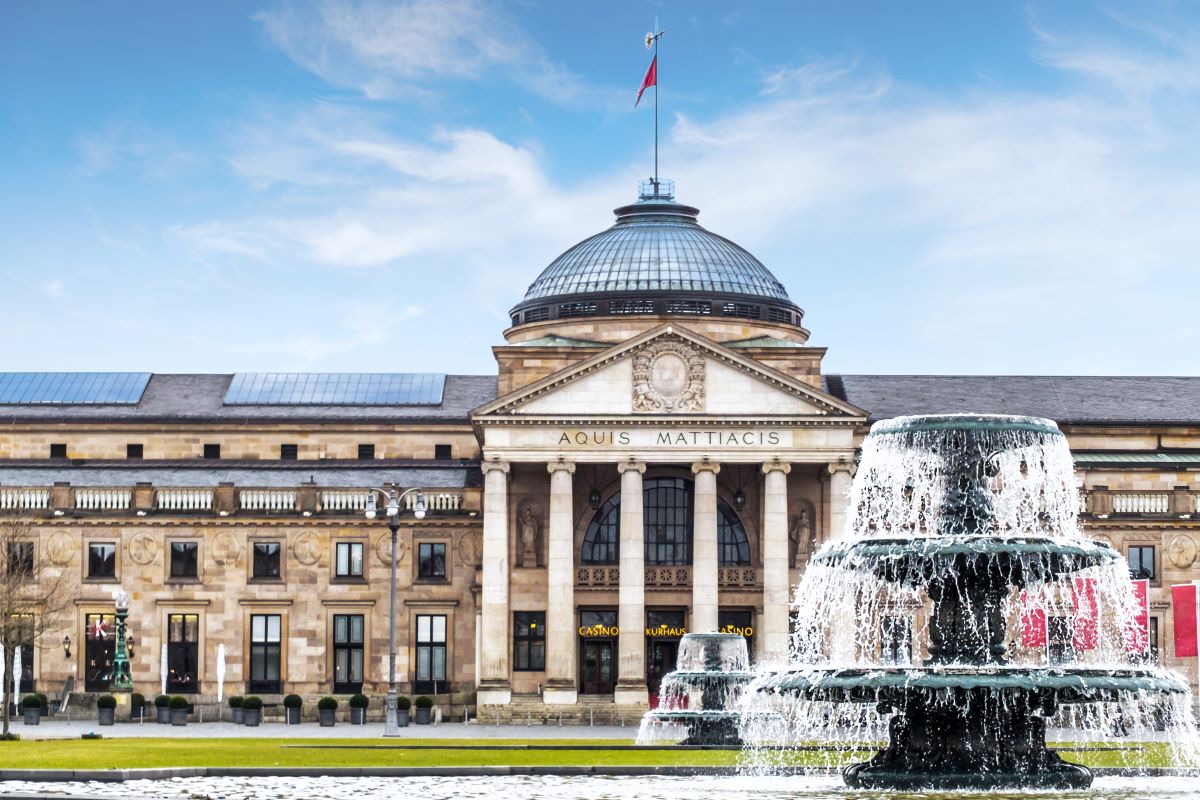
Casinos in Wiesbaden
I, in principle, are not gambling, so I just intended to live in Europe. Get work experience in an international company. I wanted to travel a lot, since you can easily reach or fly to any European attraction.
If you are interested in the details of my travel experience, collisions with German orders, family budget management - welcome under cat.
Spoiler alert : If you are bored reading about my experience, but wondering about the budget, skip to the end of the article.
In the comments to the first article, I got a lot of "why did you come back?" And when I described all my arguments in detail, it became clear that the answer was very long.
To stuff everything into one article is inhumane in relation to readers. Forgive me generously, wait for the third and final article about my move, which is still in the drafts.
So, I moved to Wiesbaden.
Location
Wiesbaden left only fond memories for me.
The city is striking in its beauty, combining different styles of architecture, from Gothic to Baroque. Every day I
Wiesbaden is clean, well-groomed, green, there are many parks and a forest nearby. Ideal for walks with children and for mountain biking. The cycling culture of local residents is amazing. Most Germans have very high quality and expensive bicycles, and some of them cost more than my car (which contrasts with other countries, for example, Italy or the Netherlands). Cycling enthusiasts can be found everywhere, from the nearby mountains, where they "downhill" on "double suspension", to the bike path along the Rhinewhich they ride on elegant road bikes.
There are also thermal springs and saunas. I miss Thermalbad very much . In these baths you can pretty well, and I would say, inexpensively take a steam bath and swim in the outdoor pool.
It should be noted that the rules for visiting public baths go back to ancient times and can cause a fair amount of amazement in a modern person.
First, there is no division of baths into male and female. And secondly, it is prohibited to wear bathing suits.
Yes, you understood correctly: unfamiliar men, together with unfamiliar aunts, bathe and bathe completely naked.
Many readers of the first article have expressed their disapproval of Wiesbaden. Well, the taste and color of the markers are different. For me personally, the main disadvantage is that it is a “city of pensioners”. Many wealthy Germans spend their old age here. But otherwise, I think this is one of the best places in Germany.
Beautiful. Eco-friendly. Safe.
Yes, if you are young (or old, but young at heart), it will not suit you. But for such a deeply family zombie like me, the city is close to ideal.
Wiesbaden is a 40-minute drive from one of the largest transport hubs: Frankfurt International Airport. And this is its indisputable plus when it comes to travel.
Travels
So, having settled down, the first thing I did was traveled half of Europe.
Because I had such a dream: to live, work and travel.
And she was embodied. And I assure you, this is qualitatively different from the idea of flying to Europe for a week on vacation.
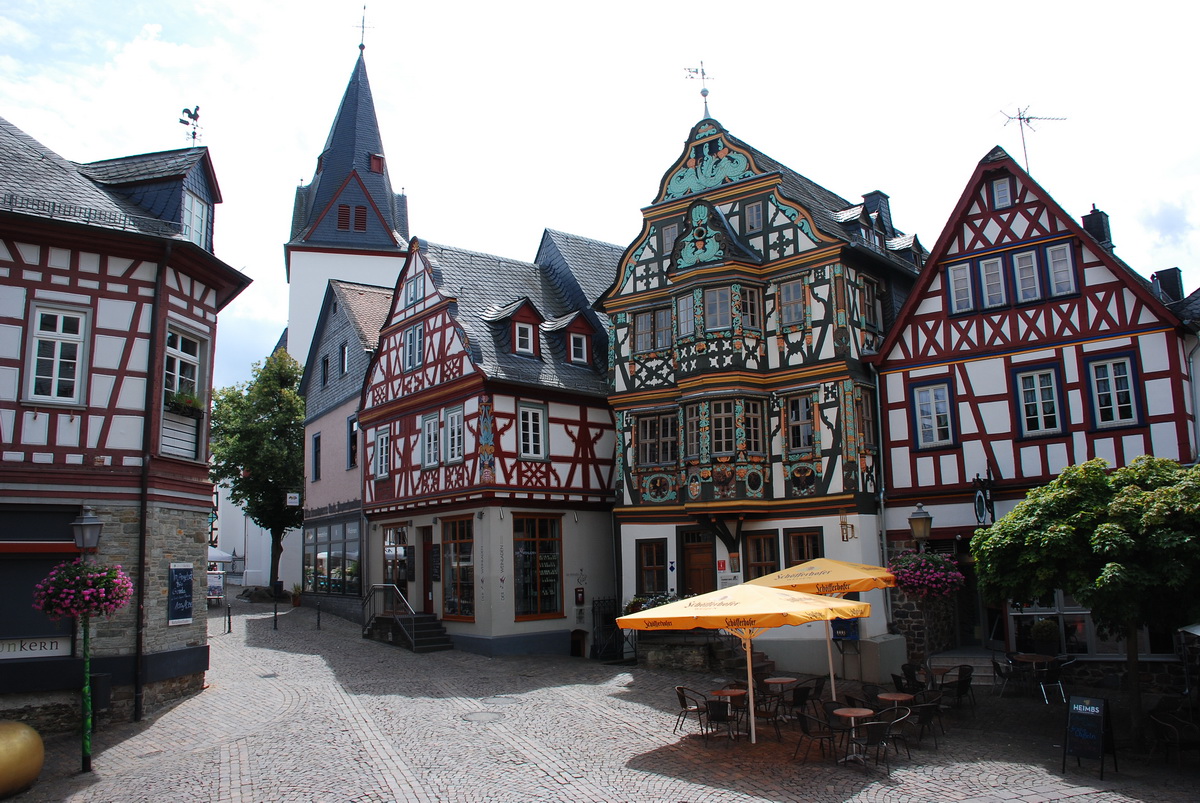
Idstein
Paid time off was provided every 2 weeks at work. It happened historically. This means that every two weeks it was possible to leave for 3 days on a short trip.
On such weekend trips, I examined everything within a radius of 300-400 km. At first glance, this is not much. But only at first. These are Germany (except for the eastern lands), the east of France, Belgium, the Netherlands, Luxembourg and even a little bit of Switzerland.
I looked into almost every remarkable city, every significant castle, visited every museum or art gallery of interest to me on this territory. I got to know these countries, their culture, architecture, history and art from the inside.
I have never been a fan of museums. The voluntary-compulsory contemplation of ancient clay shards or a table at which this or that great writer worked, in my school years brought me despondency.
European museums are something unimaginably large-scale and interactive. You can't list everything, but most of all I liked the Museum of Technology in Speyer (Germany), Europe's largest City of trains in Mulhouse (France), Basel Museum of Natural History (Switzerland)
Oh, well, moreThe Dresden Art Gallery (Germany) and the Prado Museum in Madrid (Spain), but I got there by plane.
Based on my experience, I would recommend short trips to everyone. They guarantee the most vivid and rich impressions, as well as the opportunity to visit a huge number of colorful places where you can rarely meet other tourists.
My method is this: book a house in a village in the middle between interesting places (it is relatively inexpensive). By car (your own or rented - it doesn't matter) get to this village, and from there make radial "sorties". So in 3 days you can visit 2-3 places.
If you live outside the EU, the essence is still the same: fly in, rent a car at the airport, and go to the village. Yes, you will have to spend money on renting a car, but you will save on accommodation, as well as on tickets if you are going to visit different places.
Small, inconspicuous towns for 30 thousand people can compete in their beauty with well-known tourist places. Moreover, to compete successfully if you (like me) do not like jostling in a crowd of tourists.
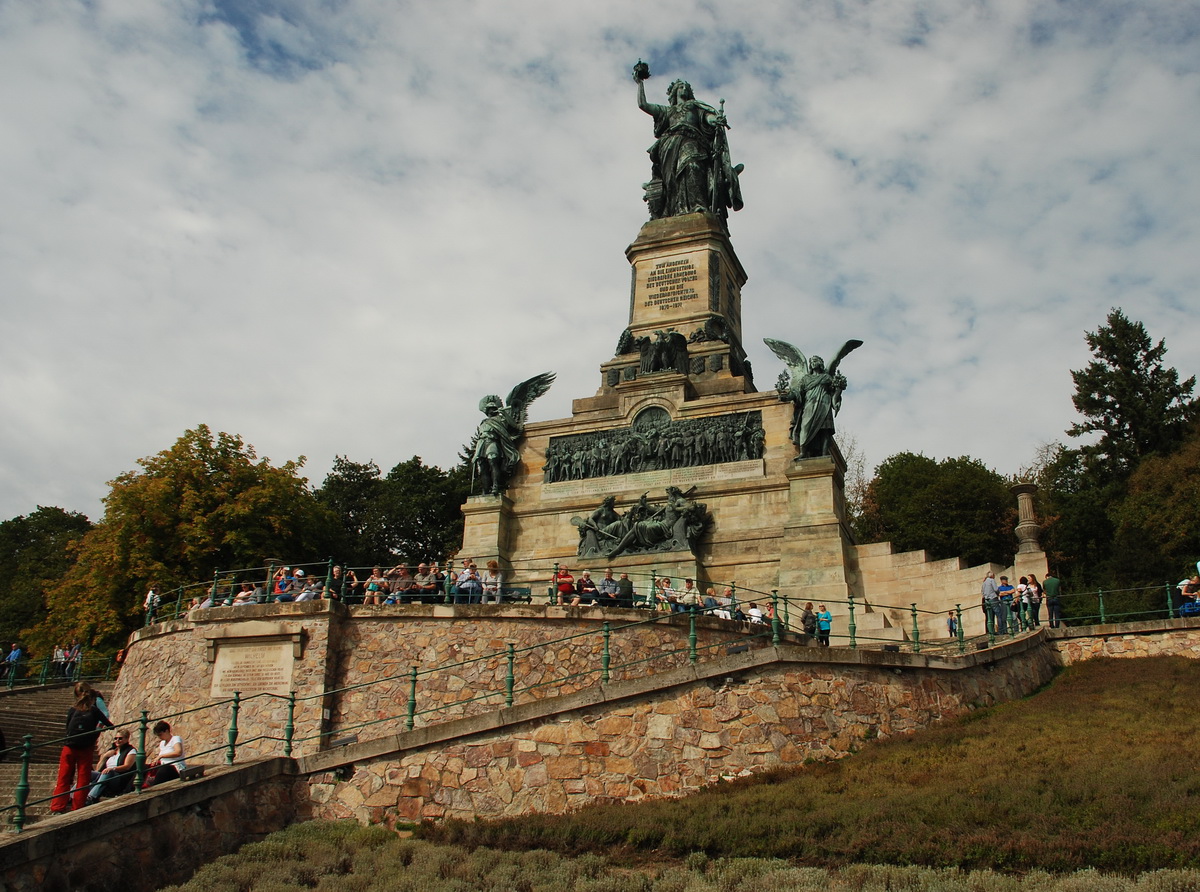
Ruedesheim am Rhein
Traveling by car is a pleasure. Although the Germans also have a small number of eccentrics on the roads, most of them are very polite and hardly violate traffic rules. A car with foreign license plates is treated like a student of a driving school: they keep a great distance and miss more often. They even have a question in the list of tickets for the license exam: what will you do if you see “non-German” numbers.
Unfortunately, not all European countries have the same high driving culture. In Italy, for example, everything is different: on the track you feel like a splinter carried by a rapid stream with whirlpools and rocky shores.
Autobahns in Germany are of amazing quality, and there is no speed limit for the most part. Because of this, the distance between the two cities, 400 km, can be covered in 3-3.5 hours. Smaller roads are good too.
Of the minuses: many small roads are very narrow and have almost no shoulder. They are laid "end-to-end" to the forest. Every time I left with the truck, my palms were sweating.
And the roads are also being permanently repaired. Considering that repairs are worth at night and on weekends, the whole process is greatly delayed and spoils the nerves a lot due to unexpected traffic jams. Once I got stuck in a traffic jam that I drove through France. Well, what, for a mad dog, 100 miles is not a hook.
The most convenient way to travel around Europe is by car. A bus is, to put it mildly, for those who like to save a lot to the detriment of comfort. The train is notable for its speed, comfort and high cost. Very often the price of two adult train tickets exceeds the cost of renting a car. Moreover, trains are late. Which cannot but "please" if you have a ticket with a transfer. So without a car - nowhere.
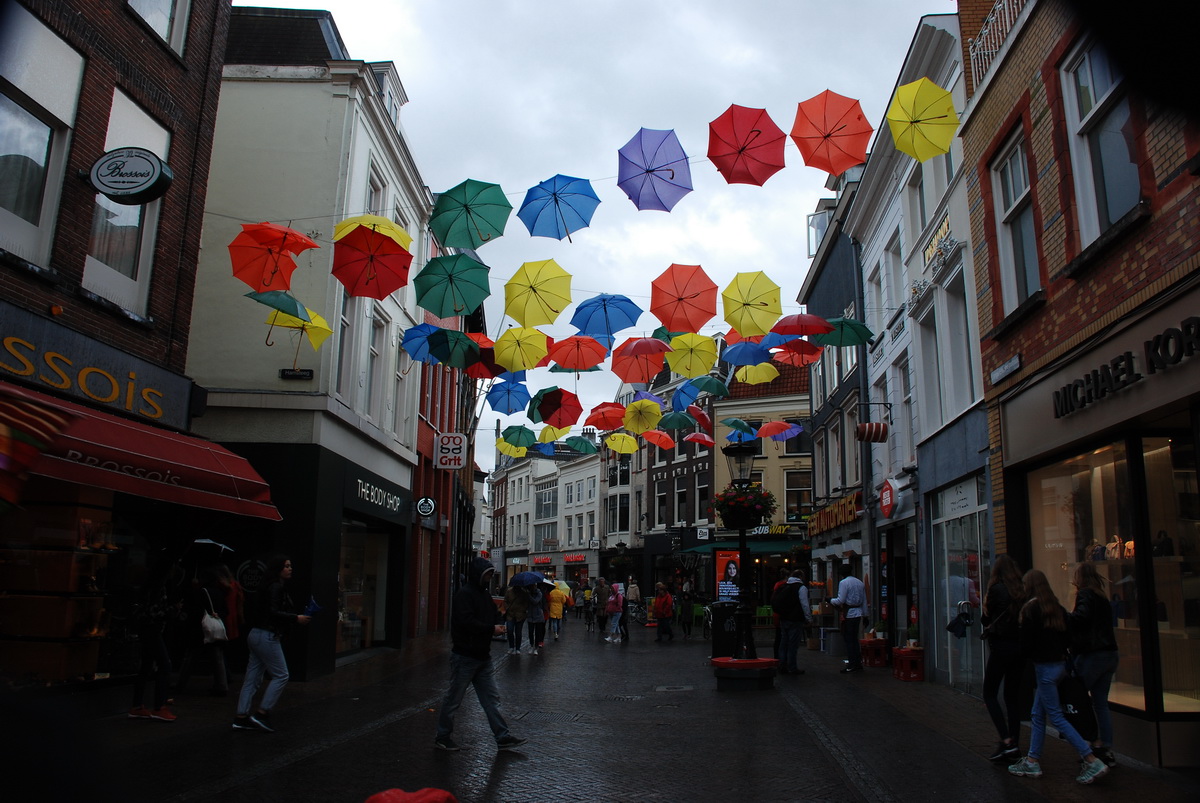
Amsterdam
Car
As luck would have it, everything went wrong with my car. Although Opel seems to feel good in its historical homeland. The prices for the service are simply horse-drawn. Usually the dealer insists on buying only original parts and only from them. Your spare parts may easily refuse to install. And if they do, then there is no guarantee.
It is clear that you can somehow dodge and spend less money. But this will not be possible immediately.
I accidentally met a "Russian" German who worked in the official service. He agreed to change parts, not wondering where they came from.
By the way, it was completely incomprehensible to me how much one can officially skate on foreign numbers. It all depends on how you interpret the law. Ordinary Germans could not translate the laws for me from German legal to German colloquial.
In general, I decided to drive the car back and drive the rented one. Renting a car, if you need it 1-2 times a month, turns out to be more profitable than maintaining your own. Companies are constantly updating their fleet, so the rented car will be almost new, comfortable, fuel-efficient (at a price of 140-160 cents for gasoline, this is noticeable) and stuffed with electronics.
In order to travel around Europe without problems, it is very important to change your license in time. Because foreign rights after six months of residence turn into a pumpkin. You can, of course, drive on them, but at your own peril and risk. It's not about being caught with expired rights, not at all. Police officers are almost absent on the roads and cars, as a rule, do not stop. And if they stop, they will most likely mistake you for a tourist.
The problem is that in the event of the slightest accident, there will be an investigation that will show that your license has expired. Expired - this means they are not. You are driving without a license. And guess who is most likely to be found responsible for the accident? And guess where your insurance will send you? This means that even with the slightest accident, you pay for both cars. That is, we got thousands of euros. In case of a serious accident - tens of thousands, because there are a lot of new and expensive cars in Germany.
Changing rights is not an empty formality. You need to finish a driving school according to a simplified program and pass the theory + driving in the local analogue of the traffic police. The minimum costs are 800 euros. Each retake is 200 euros.
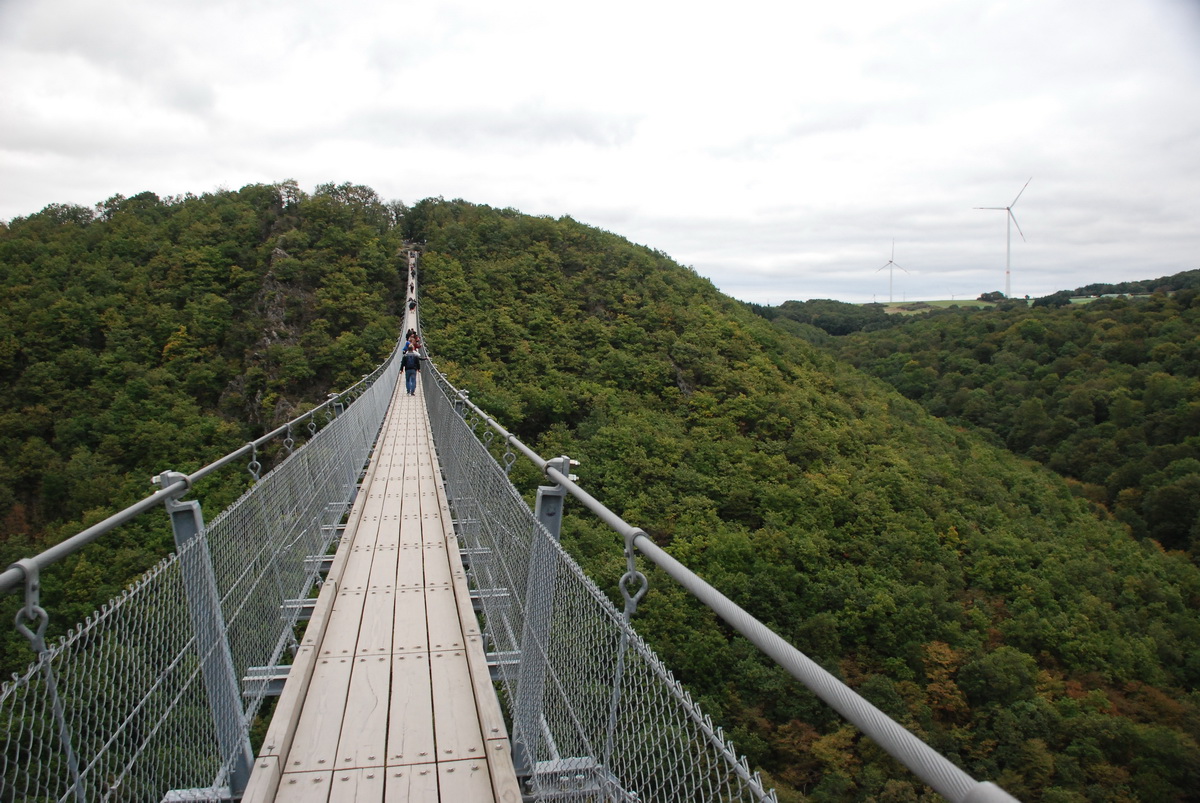
Mersdorf, the largest suspension bridge
Education
Traveling is very cool, but you can only leave on holidays and weekends.
Because the school.
If you do not care about the rules and disrupt the child from school, you can run into custody. Depriving a child of the legal right to attend school is very, very expensive.
I described what going to kindergarten and school is like from a practical point of view in the first article. And now I would like to talk in more detail about the culture of education.
The Germans have a very long childhood. They try not to bother their children with their studies in elementary school and not to overload them in middle school.
However, at the same time they foster social activity in children. They accustom them to a hierarchical system of power. In practice, they study how democratic mechanisms should work. For example, they arrange voting on the priorities for the further development of their native school.
In high school, there are two or three assistant teachers in the classroom who are in charge and replace the teacher when the teacher is absent. And if someone breaks the order, he is sentenced to social work. The quantum of punishment is half an hour. For example, if the troika court decides that the student is behaving badly, he will have to wash the floors for half an hour after school. Or an hour.
Or one and a half.
Of course, the sentence can be appealed against the teacher.
Among all the teacher assistants from all grades, the elders of the school are elected by voting. They even prepare an election program, arrange debates. In general, everything is grown-up.
By the way, punishment can be avoided by calling on parents for help (although this happens extremely rarely). Because if the parents say that they forbid to force the child to work - so it will be.
In fact, the teaching staff has no real levers of power from the word at all.
For children's rights.
Everything is based on personal authority and the ability to divide and rule. In particular, the ability to separate the most active students from the team and make them assistants.
Much attention is paid to the ability to formulate thoughts in writing, the ability to argue their opinion, oratory. Students develop projects, defend these projects in front of the class, and discuss. Exercises to develop thinking. For example, you need to find 5 arguments in favor of dismantling a steel plant. And then find 5 arguments against. It's super cool!
They have a very good English learning program. Anyway, foreign languages.
Teachers approach each student individually. Everyone can have their own development plan, their own recommendations that need to be followed. For example, attend an optional German language course.
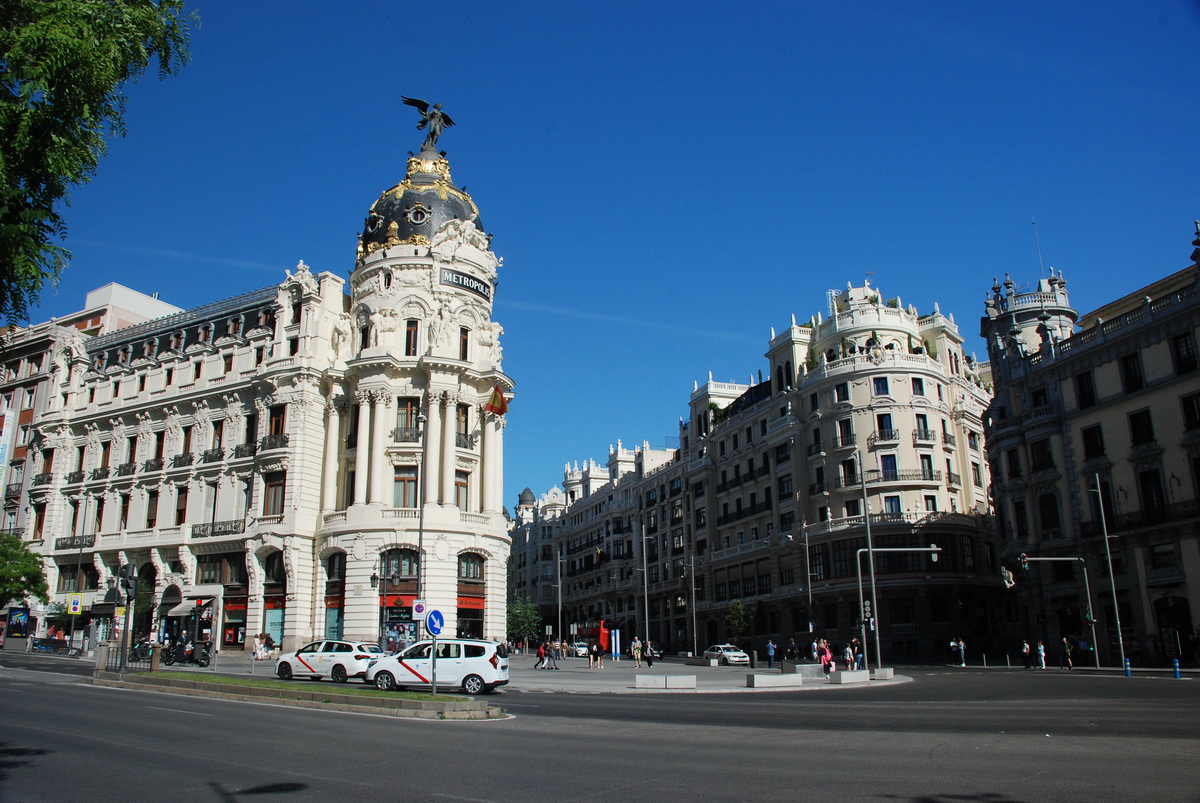
Madrid
But at the same time they have some strange, I would even say - wild norms and traditions.
For example, organize races among students to help the school. That is, schoolchildren must find sponsors (of course, the sponsors will be relatives), who must give money so that the students organize a race, so that they can then give this money to the school. Perhaps this invention came from German overseas friends, I don’t presume to judge. But as for me - strange. Especially considering the fact that the race cannot be refused. Either show the doctor's note, or run. Parents' refusal will not be accepted.
Or they have an interesting tradition of walking in the fresh air during breaks. At first glance, this is a wonderful tradition. I myself am for fresh air with both hands and feet! But only if the weather is good. The Germans, on the other hand, drive children out for a walk under any conditions. Well, rain, so what. As a result, children regularly get wet and then get sick no less regularly.
But the most egregious incident occurred when organizing a school festival. The children were told to bring treats (preferably homemade) for the holiday. Naive parents did their best: everyone wanted their child to come with the most beautiful and delicious homemade cake / pie / roll / cookies.
Then the school administration took everything from the children and organized a fair. Where children had to buy treats.
Again.
At the feast, the children took away the food they brought and made them buy it back. The proceeds, of course, were taken by the administration.
Half of the children had no pocket money and just watched the others eat their treats. And then we went home. Hungry.
Well, let's not talk about sad things.
I'll tell you about what is usually kept secret. That is, about money.
To ask a German about money is the height of indecency. I bet the question "how many times a week do you have sex" is not as personal to them as the question "how much do you get"
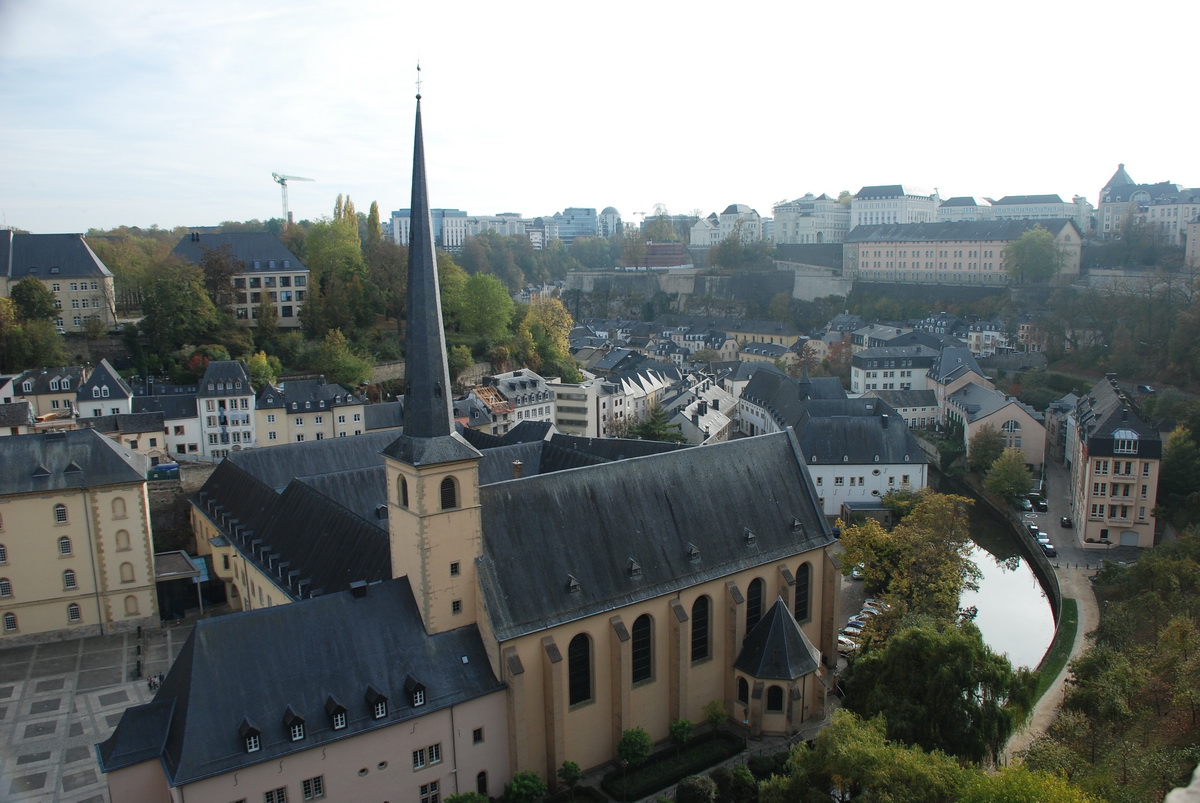
Luxembourg
Income
I'll make a reservation right away that I'm not good at German accounting. All obligatory extortions (taxes, pension contributions, health insurance and various incomprehensible lines in the paycheck) I call "taxes". In my case, these "taxes" amounted to about 35% of the salary (for single people, or for both working spouses with such a salary, the state would take 45%)
. I no longer work, I can state specific figures with a clear conscience.
Drum roll ...
As a lead developer in 2018, I received 82 thousand euros a year "dirty", and in 2020 - already 85 thousand. It's a lot. Of course, it all depends on the region, but on average, for a good developer, 65-70 thousand is the ceiling (correct me if I'm wrong).
So, I was getting 85 a year, or 7 a month. Space money, right? Yes, so, this is 2 times the average salary in Germany. However, the German progressive tax scale sought to equate me with the less affluent residents.
Out of 7000 I received 4600 on my hands. And the first month, until my spouse registered - 3800 in general. Taxes, sir.
Fortunately, the social system can not only take but also give. 4 months after the move, after the Blue Card was issued, local social benefits began to apply to me and my family. In particular, I began to receive an allowance of 180 euros for each child. By the way, it is indexed every year, and now it is about 200 euros.
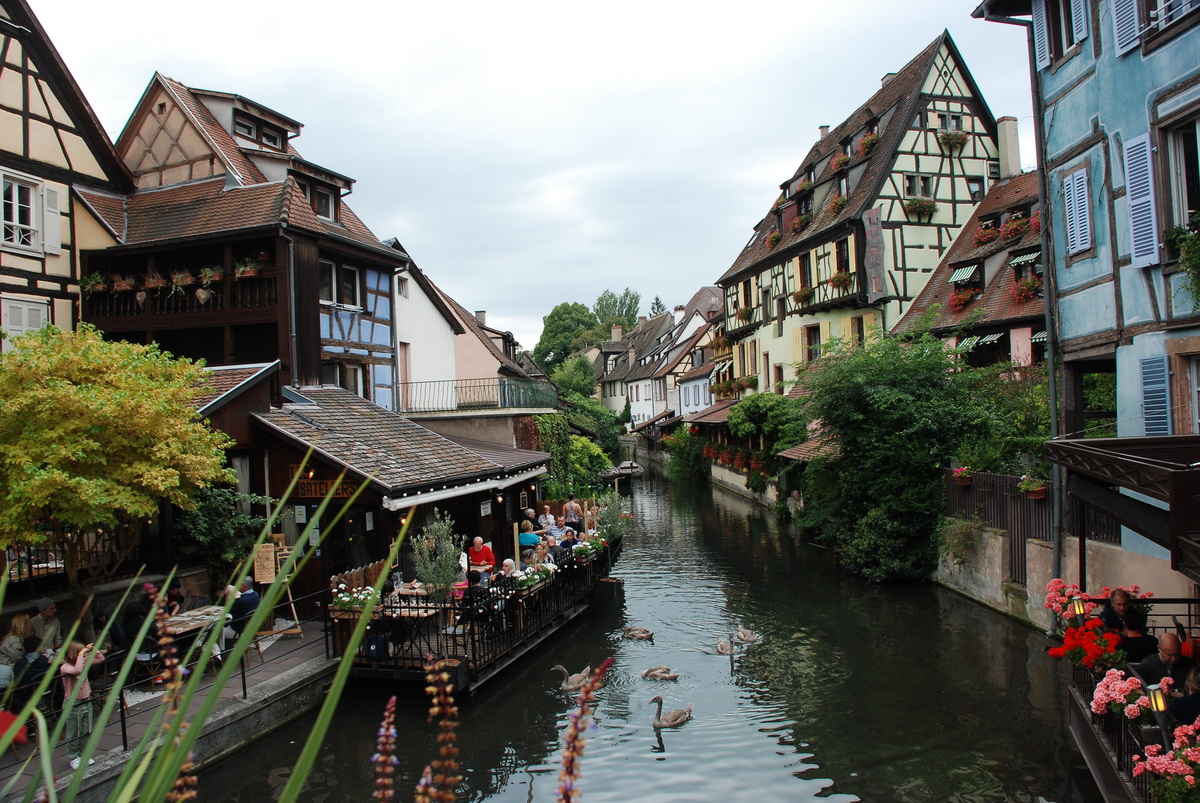
Colmar
Costs.
Renting a home is quite decent money. I was paying 1050 euros a month for an 85m ^ 2 two bedroom apartment. I barely found such a "small" apartment, because the Germans categorically did not want to rent a 2-bedroom apartment to a family with 3 children. And in general, children are not very much. On the street you will more often see a German lisping with someone else's dog than with someone else's children.
It is good that the owner of the apartment was a Turk, who did not see anything reprehensible in the children.
The communal apartment cost another 250 euros, electricity - 80. In addition, under the lease agreement (and just to sleep well) I had to fork out for insurance, which is about 60 euros. In general, the Germans have a highly hypertrophied insurance system.
You simply cannot avoid many insurances, but it is not at all a fact that you will receive something upon the occurrence of an insured event. Insurance companies use all sorts of tricks to avoid paying. For example, an insured bicycle was stolen from my friend (a German). And he got nothing, because the bike was fastened with only one chain. But it was necessary - for two.
But I got distracted.
I also paid 35 euros for the Internet, 25 euros for mobile communications (which I greatly regretted, I had to choose an operator not for price, but for reliability. Then the price tag would be 40, but the connection would not be disconnected in other EU countries). For the minimum tariff, the children were paid ten more.
Total one and a half thousand - like from a bush.
One-month public transport pass - 80 euros. But I didn't buy it because I'm
By the way, renting an apartment far from the center, you need to understand that you will have to purchase a travel card for yourself and your family members. And it may so happen that, together with the fare, the price will come close to the price of apartments in the central regions.
Then I paid 150 euros a month for a kindergarten. The school is free (more precisely, there, too, sometimes it was necessary to donate money for all sorts of little things, but I did not even take them into account).
If we subtract from income all these obligatory and non-cash expenses, in my hands every month I could “hold” a rustling pack of about 3,500 euros.
Meals cost 200 euros for "business lunches" + about 800 for groceries + 200 for all kinds of cafes (In the cafes we ate mainly while traveling, so I don't know whether these costs can be attributed to food or travel). The amount is impressive, but if you remember that we are talking about a family with 3 children, and I eat meat 3 times a day (vegans, forgive me!), Then it turns out not so much.
I also had to pay some bills in Russia, that's another minus 400.
Another unexpectedly big expense for me was the car. While driving my own, I spent an average of 200 euros per month on repairs. When I switched to rented cars, it turned out 300 euros per month (including renting a car 2 times a month on weekends)
We spent little on clothes. It is difficult for me to voice the amount, since the expenses were very episodic, but approximately it was about 250 per month.
We flew to Russia twice a year. Once the tickets were paid by the company, the second time they had to fork out for 1000-1300 euros for 5 (depending on the season).
There were also various non-systemic or unforeseen expenses, of which the largest was the payment for a driving school.
In total, there were 1200 free money left from the crispy pack, which could be spent on anything.
Since there is only one life, we spent almost all of this money on travel. Although it would be possible to save up for a new car. Or, purely hypothetically, for an apartment. If you wanted to, denying yourself everything and counting every cent, you could double the amount of free money. But we did not have such a goal.
Summing up the money: with such a salary, my family had a fairly good standard of living. Like a typical middle class.
Most Germans live worse. But at the same time, I felt that I could very rarely afford some ordinary things (for example, a taxi).
If you are moving with your family, you need to understand that most likely there will be only one working. The second - maybe someday (depends on the specialty). In general, you need to count the money in advance, before moving, so that there will be no surprises later.
So, I have described a lot, but not all.
Continuing the story of German life and why I ended up coming back, wait for the next, final article about Germany.